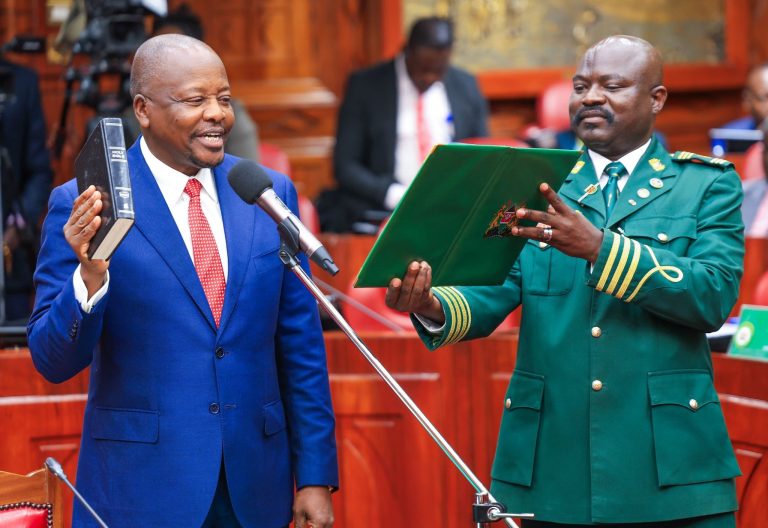Mutahi Kagwe promises to tolerate online critics
By Luke Oluoch, January 14, 2025Cabinet Secretary nominee for Agriculture and Livestock Development Mutahi Kagwe has promised to be tolerant to online critics, who have been a thorn in he flesh for the current regime.
Speaking during his vetting exercise on Tuesday, January 14, 2025, Kagwe pledged to establish a robust communication strategy, leveraging his experience as a former cabinet secretary.
“Social media has been incredibly helpful, but it also has its downsides. I know leadership has been more challenging because of social media, but the benefit is that it allows us to communicate directly and easily with people, who are increasingly active on these platforms. My intention is to continue working with the Fourth Estate as openly and transparently as possible. We will be criticized, and that’s perfectly fine because oversight is part of their role. I will work closely with them and ensure we use social media positively,” Kagwe said.

He further acknowledged the significant role social media plays in the digital age, noting that both its positives and negatives must be embraced.
“We are going to establish a strong communication system, both through mainstream and social media. I will use these platforms to clearly disseminate information to the farming community. This is not the first time I’ve relied on media—during the COVID-19 pandemic, media played a crucial role in disseminating information and supporting government activities,” Kagwe said.
“We must acknowledge that in this age of democracy, we must accept both the benefits and the drawbacks. They will continue to persist, and nothing will change that,” he added.
Beyond his leadership in the Health docket under President Uhuru Kenyatta, Kagwe also oversaw the Information, Communication, and Technology (ICT) docket in 2005 under late President Mwai Kibaki.
If approved for his new role, one of Kagwe’s key responsibilities will be managing the controversial mass livestock vaccination program. The initiative aims to vaccinate cattle, sheep, goats, and other livestock, though it has faced significant opposition from some members of the public.
More Articles

